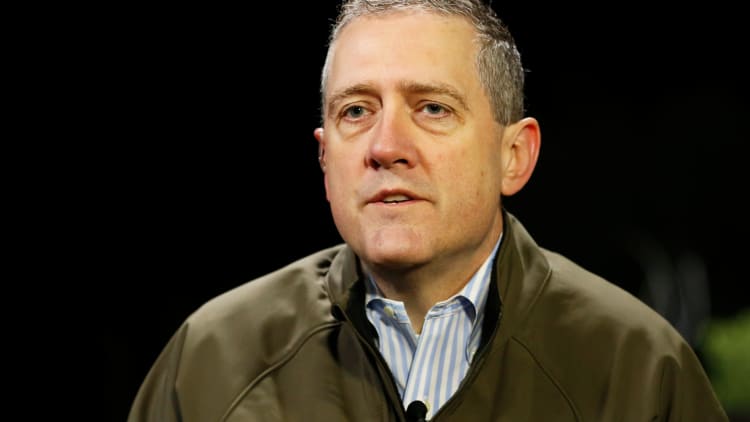
St. Louis Fed President James Bullard said Friday that he believes the recession caused by the coronavirus pandemic is over but that the central bank will continue its accommodative stance toward the U.S. economy.
Bullard said on CNBC's "Closing Bell" that he expected the third quarter to be "one of the best quarters ever for economic growth in the U.S." after a record downturn in the second quarter, when gross domestic product fell by more than 30% on an annualized basis. The central banker said that he thinks the recession only lasted for two months and that the economy would continue to grow in the fourth quarter of 2020 and the first quarter of next year.
Despite the improving economy, Bullard said he did not expect the Fed to make major changes to its current policies, which include a benchmark interest rate back at its historical low and programs to buy up corporate and government bonds.
"I don't really think this is about monetary policy. This is about the virus, and the economy adapting to the virus, the risk management around the virus and the contagion that would otherwise occur," Bullard said. "I think our monetary policy is just right for this situation. We have a low policy rate, and we're going to stay low for a long time."
Bullard's appearance came a day after Fed Chair Jerome Powell's remarks at the virtual Jackson Hole, Wyoming, conference. During his speech, Powell explained that the central bank was now willing to let the inflation rate run above its 2% target for a period of time if it had previously been below the mark.
Powell said that moving to a target that resembled a 2% average would not be strictly formulaic. Other Fed officials have since given their opinions on what would be acceptable, with Philadelphia Fed President Patrick Harker saying he'd be comfortable with inflation "somewhere north of 2%" but was more concerned with the growth trajectory than the overall level.
Bullard noted that since inflation has largely been under the target by half a percentage point in recent years, he'd be willing to let it "run above by half a percent for quite a while. The idea here is to cement inflation expectations at that 2% target."
Fed officials including Powell in recent months have said that the economy would need more fiscal help from Congress and President Donald Trump to continue the recovery. The relief programs from the CARES Act, including the Paycheck Protection Program and an additional $600 per month in unemployment benefits, expired at the end of July.
Bullard said the rise in personal income for Americans showed that there might still be extra "resources in the pipeline" despite the ending of some of the relief programs, which could be weakening the incentives to striking a new deal.
Weekly initial claims data from the Labor Department showed that more than 1 million people filed for unemployment benefits last week. The next nonfarms payrolls report is slated to be released Sept. 4.


